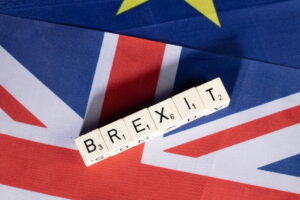Tag: brexit
Bursting the PC Bubble: Britain Officially Leaves the European Union
by The Cowl Editor on February 6, 2020
National and Global News

by Alexandra Huzyk ’20
News Staff
On Jan. 31, the United Kingdom officially terminated their membership as a part of the European Union—making the UK the first member state to withdraw from the Union since its early beginnings, as the European Economic Community, in 1957.
Now composed of 27 countries, the EU acts as a political and economic union that allows free trade and free movement of people within its member states.
Since the UK became a member of the European Economic Community in 1973, there have always been debates about the pros and cons of membership. However, “Brexit” became a controversial topic in 2013, when Prime Minister at the time, David Cameron, raised questions about the economic challenges and migrant crisis facing Europe. In a 2016 referendum, 52 percent of UK citizens voted to leave the EU.
With London as a global financial center, many feared that Brexit would prompt international companies to relocate and would deter investment in the UK. Others, who perceived free movement and immigration to be a threat to their working-class jobs, viewed Brexit as a way to reclaim their country’s economy in the midst of mass refugee movements.
Although the vote in the 2016 referendum remained very close, there was a stark geographic correlation between those who wished to remain in the union and those who did not. Most voters within rural sections of England and Wales voted to leave, whereas the majority of voters in London, Northern Ireland, and Scotland voted to remain within the EU. This brought about questions of holding further referendums for Scottish independence—another highly contested topic within the UK.
After Cameron’s resignation in 2016, Theresa May assumed office and began to work towards formalizing the conditions for Brexit. Brexit day was initially supposed to take place on March 29, 2019, but was delayed twice after members of Parliament rejected May’s negotiations.
This delay was further extended after May resigned from office in March 2019, and successor Boris Johnson took the lead in revising Brexit legislation.
After calling for an early general election in which a conservative majority was established in Parliament, Johnson was able to successfully pass the deal for Brexit before the January 2020 deadline.
Although the UK has formally left the EU, there will be nearly a year of negotiations following. This period of time, in which negotiations are set to take place, is referred to as the transition period or the implementation period.
The terms of this transition period were previously agreed upon in the Withdrawal Agreement Bill, which states that the period is due to end on December 31, 2020 with no extensions. Within this “11-month period, the UK will continue to follow all of the EU’s rules and its trading relationship will remain the same.”
These upcoming negotiations between the UK and the EU will help to determine what kind of relationship will exist in the future. One of the biggest topics to be addressed is trade. If the UK is unable to negotiate a free trade agreement before the end of this transition period, the UK may be forced to trade with no concrete deal in place.
Potential consequences of this might involve EU states placing tariffs and other trade barriers on UK goods, which would negatively impact the UK’s economy and its status as a major exporter.
In addition to the matter of trade, a number of other concerns are to be negotiated. Some of these topics include law enforcement, data sharing and security, aviation standards and safety, access to fishing waters, supplies of electricity and gas, and licensing and regulation of medicines.
The biggest challenge for the UK will be getting all the new rules and policies in place by the end of the transition period.
